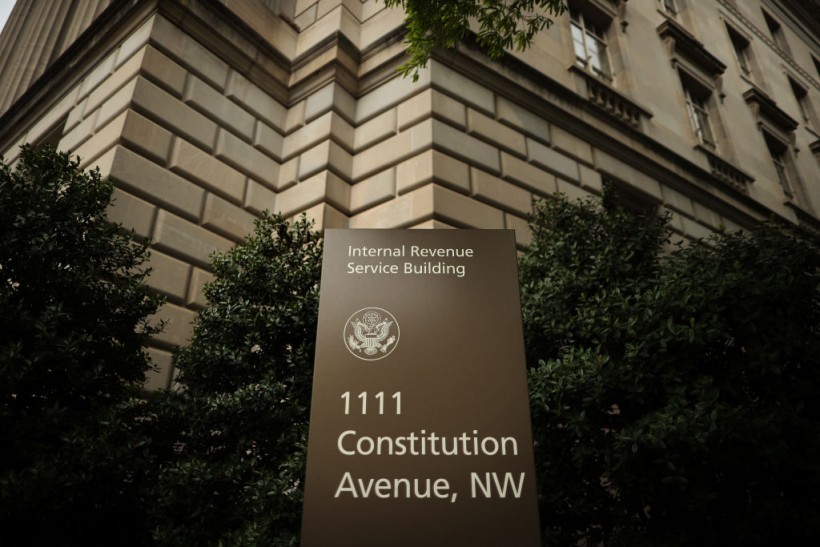
(Photo : Chip Somodevilla/Getty Images)
Taxpayers in the United States have been warned by the IRS on its Feb. 23 notice on an increase in charges in the next few months. According to the tax agency, the increase in interest rates for the calendar quarter will start on Apr. 1.
Taxpayers in the United States have been warned by the IRS on its February 23 notice of increased charges in the next few months. According to the tax agency, the increase in interest rates for the calendar quarter will start on April 1.
A taxpayer can accrue interest in two kinds of payment: overpayment or underpayment, according to Best Life.
Overpayments will accumulate a 4% interest rate beginning in April, except for businesses, which will accrue a 3% rate plus a 1.5 percent rate for a fraction of a corporate overpayment that exceeds $10,000.
In the occurrence of underpayments, the interest rate will be hiked to 4% overall and 6% for major corporate underpayments.
The IRS explains that the rate of interest is determined quarterly under the Internal Revenue Code. The agency made no interest rates adjustment in this previous quarter that started January 1, 2022.
What Will Be Adjusted?
The current rates are 3 % for general overpayments and 2% for corporation overpayments, with a 0.5 percent for the part of a corporate overpayment that is more than $10,000. The interest for underpayment is 3%, large corporations have a 5% rate.
These rates are set to change in April, which could mean a taxpayer will be charged by the IRS more.
Starting April, those facing interest on an underpayment will be charged more for it by the IRS. The tax agency charges underpayment interest on those who do not pay tax, penalties, on top of tax, or interest on time. The tax agency warns that "the underpayment interest applies even if you file an extension."
Most taxpayers have until April 18 to file their 2021 tax returns and pay their taxes, per CNET.
The date by which you must settle penalties and additions to your taxes to avoid accumulating interest, on the other hand, may vary depending on your penalty.
There are no penalties for submitting federal taxes late to those who are owed a refund, though this may be different for state taxes. Nonetheless, it is recommended to e-file or mail your tax return as soon as possible.
The IRS said that those serving in the military might be granted an extended time to file their taxes.
Taxpayers Urged To Use Online Payment Options
The tax agency encourages taxpayers to utilize its online account feature that allows same-day payments from a savings or checking account.
"Taxpayers can view up to 5 years of their payment history, any pending or scheduled payments, balance, and payment plan information, and digital copies of certain notices from the IRS. They can also view their Adjusted Gross Income from their most recent tax return, their Economic Impact Payment amounts, and their advance Child Tax Credit payment information," according to the IRS website.
Moreover, taxpayers also have the option of IRS Direct Pay that allows users to "schedule a payment from their bank account" according to their deadline of filing taxes. There is no need to register or log in to use the service. While those who would like to pay business taxes are encouraged to utilize the Electronic Federal Tax Payment System (EFTPS).
Visit IRS.gov/payments for further information on all these payment options.
Related Article: Europe Warns Vladimir Putin, Russia of "Financial Nuclear Weapon": What Is It?








